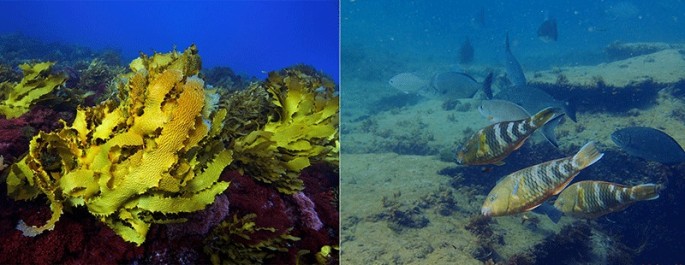Australia is now suffering from not one but two, marine environmental disasters, after the massive bleaching of the northern part of the Great Barrier Reef. Now, biologists from the University of Western Australia reveal that a marine heatwave is causing a serious roasting of the underwater kelp forest, off the Australian coast, affecting the ecosystem in the region.
Some 60 miles of kelp are now being ravaged by this heat wave, as warmer temperatures became more prevalent, after first showing signs in 2011. In western Australia, water temperatures averaged 35.6 degrees Fahrenheit above normal, which lasted for a period of 10 weeks and ultimately destroying marine kelp fields.
When higher water temperatures killed off massive areas of kelp, tropical vegetation became replaced with subtropical species. After five years from this event, damage can still be observed among the kelp forest due to the Leeuwin Current that flows in the southern direction that prevents kelp recolonization. Apart from this, there are invasive animal species that can feed on the remaining kelp, that slows down its recovery.
The damage to the kelp forest spans for at least 620 miles, however a certain region suffered the greatest impact that is only about a tenth of that area. This region holds kelp damage for almost 150 square miles, and around 370 square miles of kelp were damaged to warming waters, in the southern part of that heatwave region.
Apart from this, the Great Southern Reef which stretches for more than 5,000 miles along the southern coast of the continent is also greatly damaged by this recent heatwave. The kelp forest from the western part of this region is now migrating towards the coast as warmer temperatures are increasing.
Scientists say that kelp forests are the Great Southern Reef's "biological engine", that sustains the biodiversity of temperate marine species including valuable fishing industries in Australia, including reef tourism that is worth more than $10 billion every year.
Between 2001 to 2015, scientists observed these kelp fields along with corals, seaweed, fish and invertebrates to determine the evolution of marine populations. Results revealed that 43 percent of kelp forests already disappeared due to this recent heatwave.
This new study is published in the journal Science.



























